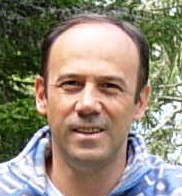Studying at the University of Verona
Here you can find information on the organisational aspects of the Programme, lecture timetables, learning activities and useful contact details for your time at the University, from enrolment to graduation.
Academic calendar
The academic calendar shows the deadlines and scheduled events that are relevant to students, teaching and technical-administrative staff of the University. Public holidays and University closures are also indicated. The academic year normally begins on 1 October each year and ends on 30 September of the following year.
Course calendar
The Academic Calendar sets out the degree programme lecture and exam timetables, as well as the relevant university closure dates..
| Period | From | To |
|---|---|---|
| First semester bachelor degree | Sep 16, 2019 | Jan 10, 2020 |
| Second semester bachelor degree | Feb 17, 2020 | Jun 5, 2020 |
| Session | From | To |
|---|---|---|
| First semester intermediate tests | Nov 4, 2019 | Nov 8, 2019 |
| Winter exam session | Jan 13, 2020 | Feb 14, 2020 |
| Second semester intermediate tests | Apr 15, 2020 | Apr 17, 2020 |
| Summer session exam | Jun 8, 2020 | Jul 10, 2020 |
| Autumn Session exams | Aug 24, 2020 | Sep 11, 2020 |
| Session | From | To |
|---|---|---|
| Autumn Session | Dec 2, 2019 | Dec 4, 2019 |
| Winter Session | Apr 7, 2020 | Apr 9, 2020 |
| Summer session | Sep 7, 2020 | Sep 9, 2020 |
Exam calendar
Exam dates and rounds are managed by the relevant Economics Teaching and Student Services Unit.
To view all the exam sessions available, please use the Exam dashboard on ESSE3.
If you forgot your login details or have problems logging in, please contact the relevant IT HelpDesk, or check the login details recovery web page.
Academic staff
 roberto.fini@univr.it
roberto.fini@univr.it
 martina.menon@univr.it
martina.menon@univr.it
 francesca.rossignoli@univr.it
francesca.rossignoli@univr.it
 0444 393941 (Ufficio Vicenza) 0458028261 (Ufficio Verona)
0444 393941 (Ufficio Vicenza) 0458028261 (Ufficio Verona)
Study Plan
The Study Plan includes all modules, teaching and learning activities that each student will need to undertake during their time at the University.
Please select your Study Plan based on your enrollment year.
1° Year
| Modules | Credits | TAF | SSD |
|---|
2° Year activated in the A.Y. 2020/2021
| Modules | Credits | TAF | SSD |
|---|
3° Year activated in the A.Y. 2021/2022
| Modules | Credits | TAF | SSD |
|---|
| Modules | Credits | TAF | SSD |
|---|
| Modules | Credits | TAF | SSD |
|---|
| Modules | Credits | TAF | SSD |
|---|
| Modules | Credits | TAF | SSD |
|---|
Legend | Type of training activity (TTA)
TAF (Type of Educational Activity) All courses and activities are classified into different types of educational activities, indicated by a letter.
Public finance (2020/2021)
Teaching code
4S00311
Academic staff
Coordinator
Credits
9
Also offered in courses:
- Public finance of the course Bachelor's degree in Business Administration (Vicenza)
Language
Italian
Scientific Disciplinary Sector (SSD)
SECS-P/03 - PUBLIC ECONOMICS
Period
secondo semestre (lauree) dal Feb 15, 2021 al Jun 1, 2021.
Learning outcomes
The aim of the course is to provide students with rigorous economic tools for the modern analysis of public policies. We will review the justifications for the economic role of the state, focusing on the role of public expenditure, taxation and regulatory policies. We will supplement the analysis of theoretical models with evidence from Italian public policies. We will focus on the underlying motivations behid public interventions and on the effect of public policies in terms of efficiency and equity. At completion of the course students should be able to: - Understand and evaluate critically the justifications for the public intervention in the economy. - Analyse and assess rigorously public policies on the basis of economic theory. - Master the economic analysis of the main italian taxation tools.
Program
Part I:
-Market failures and possible interventions: externalities, public goods, natural monopoly, asymmetry of information.
- Redistribution (cash and in-kind)
-Decentralization: theory and the implementation in Italy
Part II:
-Social security: pensions, health care, poverty and unemployment insurance
-Pension systems: the rationale for public intervention; characteristics of different pensions systems; pension reforms in Italy since the 1990s.
Part III:
-Alternative financing tools: taxes and debt;
-General principles of taxation: equity and efficiency considerations;
-What characterises taxes: tax bases and tax rates;
-The economic impact of taxation
-The main characteristics of the Italian tax system: personal income tax, corporate taxation, taxation of returns on capital, indirect taxes, local taxes.
| Author | Title | Publishing house | Year | ISBN | Notes |
|---|---|---|---|---|---|
| P. Bosi e M.C. Guerra | I tributi nell'economia italiana | Il Mulino | 2020 | ||
| H.S. Rosen e T. Gayer | Scienza delle Finanze (Edizione 5) | McGraw-Hill | 2018 | 9788838694707 |
Examination Methods
Assessment will be based on a final exam that will be split into two parts. The first part will be online and will include a set of multiple choice questions and short exercises. The second part of the exam will test the ability to discuss topics more in depth and to critically link different topics. This second part may be oral or written, depending on the restrictions existing during the period of the exam session.
Students will be also given the opportunity to sit a mid-term exam on topics covered during the first part of the course. This test will be online and will give the opportunity to obtain up to three points to be added to the final exam grade.
Type D and Type F activities
Nei piani didattici di ciascun Corso di studio è previsto l’obbligo di conseguire un certo numero di crediti formativi mediante attività a scelta (chiamate anche "di tipologia D e F").
Oltre che in insegnamenti previsti nei piani didattici di altri corsi di studio e in certificazioni linguistiche o informatiche secondo quanto specificato nei regolamenti di ciascun corso, tali attività possono consistere anche in iniziative extracurriculari di contenuto vario, quali ad esempio la partecipazione a un seminario o a un ciclo di seminari, la frequenza di laboratori didattici, lo svolgimento di project work, stage aggiuntivo, eccetera.
Come per ogni altra attività a scelta, è necessario che anche queste non costituiscano un duplicato di conoscenze e competenze già acquisite dallo studente.
Quelle elencate in questa pagina sono le iniziative extracurriculari che sono state approvate dal Consiglio della Scuola di Economia e Management e quindi consentono a chi vi partecipa l'acquisizione dei CFU specificati, alle condizioni riportate nelle pagine di dettaglio di ciascuna iniziativa.
Si ricorda in proposito che:
- tutte queste iniziative richiedono, per l'acquisizione dei relativi CFU, il superamento di una prova di verifica delle competenze acquisite, secondo le indicazioni contenute nella sezione "Modalità d'esame" della singola attività;
- lo studente è tenuto a inserire nel proprio piano degli studi l'attività prescelta e a iscriversi all'appello appositamente creato per la verbalizzazione, la cui data viene stabilita dal docente di riferimento e pubblicata nella sezione "Modalità d'esame" della singola attività.
ATTENZIONE: Per essere ammessi a sostenere una qualsiasi attività didattica, inlcuse quelle a scelta, è necessario essere iscritti all'anno di corso in cui essa viene offerta. Si raccomanda, pertanto, ai laureandi delle sessioni di dicembre e aprile di NON svolgere attività extracurriculari del nuovo anno accademico, cui loro non risultano iscritti, essendo tali sessioni di laurea con validità riferita all'anno accademico precedente. Quindi, per attività svolte in un anno accademico cui non si è iscritti, non si potrà dar luogo a riconoscimento di CFU.
| years | Modules | TAF | Teacher |
|---|---|---|---|
| 1° 2° 3° | Soft skills coaching days Vicenza | D |
Paola Signori
(Coordinator)
|
| years | Modules | TAF | Teacher |
|---|---|---|---|
| 1° 2° 3° | Enactus Verona 2020 | D |
Paola Signori
(Coordinator)
|
| 1° 2° 3° | Parlare in pubblico e economic writing | D |
Martina Menon
(Coordinator)
|
| 1° 2° 3° | Samsung Innovation Camp | D |
Marco Minozzo
(Coordinator)
|
| 1° 2° 3° | Simulation and Implementation of Economic Policies | D |
Federico Perali
(Coordinator)
|
| years | Modules | TAF | Teacher |
|---|---|---|---|
| 1° 2° 3° | Simulation and Implementation of Economic Policies | D |
Federico Perali
(Coordinator)
|
| years | Modules | TAF | Teacher |
|---|---|---|---|
| 1° 2° 3° | Parlare in pubblico e economic writing | D |
Martina Menon
(Coordinator)
|
Career prospects
Module/Programme news
News for students
There you will find information, resources and services useful during your time at the University (Student’s exam record, your study plan on ESSE3, Distance Learning courses, university email account, office forms, administrative procedures, etc.). You can log into MyUnivr with your GIA login details: only in this way will you be able to receive notification of all the notices from your teachers and your secretariat via email and soon also via the Univr app.
Graduation
List of theses and work experience proposals
| theses proposals | Research area |
|---|---|
| Tesi di laurea - Il credit scoring | Statistics - Foundational and philosophical topics |






























